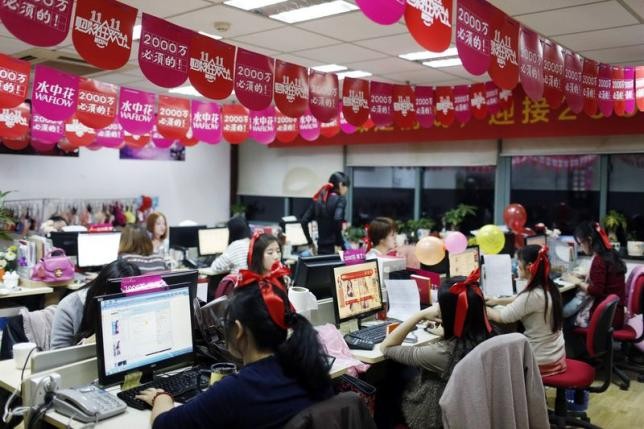Women-owned shops comprised more than 46 percent of online transactions in 2014, marking a significant contribution of the gender’s populace in boosting China’s e-commerce sector.
The figure is according to a recent report published by AliResearch, a research group affiliated with the e-commerce giant Alibaba Group Holding Ltd.
The report also showed that for Taobao and Tmall, two of the biggest Web-based shopping platforms in the country both owned by Alibaba, over half of the shops are being run by women.
"As China shifts from manufacturing to services, women who are blessed with strong acumen in dealing with the outside world will become increasingly important participants in China's economy," Alibaba vice president Shi Dongwei enthused.
The report entitled "Women in the Era of Internet Plus" was launched during the firm's first worldwide conference about women and entrepreneurship held in Zhejiang Province's Hangzhou.
The Internet Plus, on the other hand, was initiated by Premier Li Keqiang in March, unveiled alongside his Government Work Report.
Based on data analysis, more women are venturing into sectors previously dominated by the opposite gender. For instance, 35 percent of stores linked with digital products have been run by women in 2014, a significant increase from the 2005's less-than 25 percent.
The report also revealed that the most popular sectors for women are those that involved clothing, shoes and bags.
In a multi-market survey by PayPal, Inc, high percentages of women entrepreneurs are located in the northeastern provinces of Heilongjiang, Jilin and Liaoning.
Despite this good news for women, there are challenges still that the gender needs to face.
"It is becoming increasingly difficult for women to run technology startups because the products have to be updated so often," taxi-hailing firm Didi Kuaidi Dache president Liu Qing stated.
"What complicates the problem is that women have to balance their work and personal lives. In a nutshell, women are always worn out when they start an e-commerce business," Liu added.
The same sentiment was shared by Alibaba chief financial officer Maggie Wu, who recounted her experience wherein the most important earning announcement and conference call with analysts coincided with the crucial periods of her pregnancy.
Ruta Aidis, a senior fellow affiliated with the U.S.-based George Mason University, remarked that female entrepreneurs in China face a number of universal issues, including gender discrimination.



























